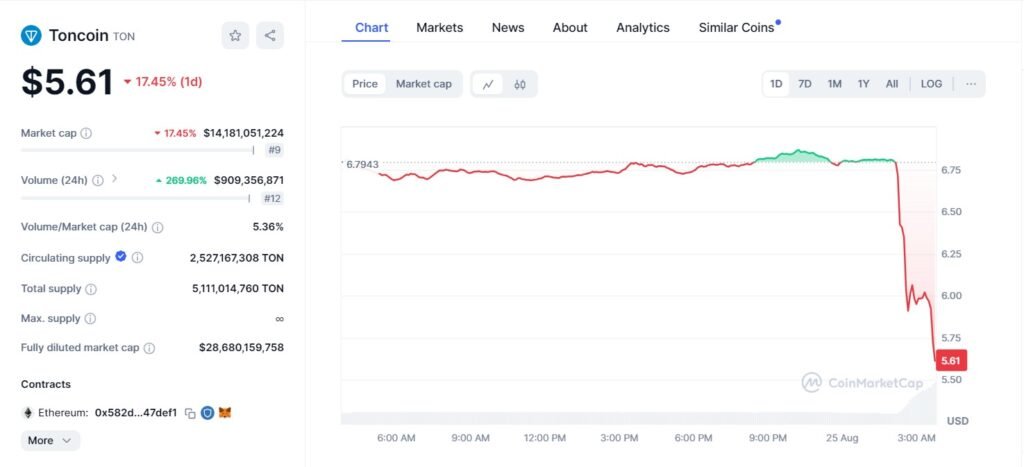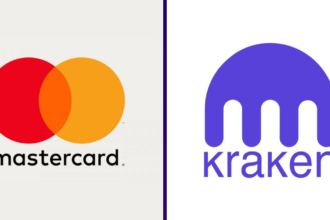Pavel Durov, the visionary founder and CEO of Telegram, was recently arrested by French authorities at Le Bourget airport near Paris. Known as the “Mark Zuckerberg of Russia,” Durov is celebrated for his role in creating Telegram, one of the world’s most popular encrypted messaging platforms, which prioritizes user privacy and security. His arrest by France’s National Anti-Fraud Office has sent shockwaves throughout the tech world, sparking concerns about the future of Telegram and its associated projects, including The Open Network (TON), a blockchain initiative initially spearheaded by Durov.
Telegram has consistently been at the forefront of debates surrounding digital privacy and encryption. Since its launch in 2013, it has grown to boast over 700 million active users globally, offering a secure communication channel free from censorship and government surveillance. Durov’s commitment to these principles has made him a controversial figure, particularly among governments and regulatory bodies that argue for more oversight to prevent the misuse of encrypted platforms for illicit activities.
The arrest of Durov raises several critical questions. How will this affect Telegram’s operation and reputation? What impact will it have on TON, the blockchain project closely linked to Telegram’s legacy? And what does this mean for the broader conversation around digital privacy, regulation, and the role of technology in society? As the tech community grapples with these questions, the incident underscores the ongoing tension between innovation and regulation, especially in the fast-evolving world of digital communication and blockchain technology.
The unfolding situation also highlights the challenges faced by tech leaders like Durov, who champion user privacy in an era where data security concerns and regulatory pressures are intensifying. As more details emerge, the implications of Durov’s arrest will likely extend beyond Telegram, potentially influencing how other tech companies navigate the complex landscape of privacy, security, and legal compliance.
Background on Pavel Durov and Telegram
1. Pavel Durov: A Visionary Entrepreneur
Pavel Durov, often referred to as the “Mark Zuckerberg of Russia,” is a prominent figure in the tech world known for his strong stance on privacy and freedom of expression. Born on October 10, 1984, in Leningrad (now Saint Petersburg), Russia, Durov developed an early interest in technology and coding. He attended Saint Petersburg State University, where he studied philology and linguistics, showing an aptitude for languages and communication. This background would later play a pivotal role in his career as a tech entrepreneur.
Durov’s journey into the tech industry began with the founding of VKontakte (VK), Russia’s largest social networking site, in 2006. VK became a major competitor to Facebook in Russia and other Russian-speaking countries, known for its user-friendly interface and focus on sharing multimedia content. Under Durov’s leadership, VK gained immense popularity, amassing millions of users. His management style and commitment to user privacy, however, put him at odds with Russian authorities.
- Sponsored -

In 2014, after a series of conflicts with Russian government officials over requests to hand over user data and censor content, Durov was forced to sell his stake in VK and left Russia. His departure marked a significant shift in his career, as he moved to focus on developing a new project that would uphold his values of privacy and free communication.
2. The Birth of Telegram
Following his departure from VK, Pavel Durov, along with his brother Nikolai Durov, launched Telegram in 2013. Telegram was designed as a cloud-based messaging app that prioritized speed, security, and user privacy. At its core, Telegram aimed to provide a platform where users could communicate freely without fear of surveillance or data breaches. This mission was particularly appealing to users in regions with strict government censorship and surveillance.
Telegram’s distinguishing features, such as end-to-end encryption, self-destructing messages, and the ability to create large group chats, quickly set it apart from other messaging apps. Unlike many other platforms, Telegram does not monetize through advertisements, which has allowed it to maintain a non-commercial stance and focus on enhancing user experience and security. Instead, Durov initially funded the project himself, using the wealth he amassed from VK.
Telegram’s commitment to privacy and encryption has made it a favorite among activists, journalists, and users who value secure communication. Its user base rapidly expanded, and today, Telegram boasts over 700 million active users worldwide, making it one of the most widely used messaging platforms globally.
3. Commitment to Privacy and Free Speech
Durov’s vision for Telegram was deeply rooted in his belief in privacy and freedom of speech, values that stemmed from his personal experiences with the Russian government while at VK. He has consistently refused to comply with government demands for user data or censorship, which has earned him both admiration and controversy. Durov’s refusal to bow to governmental pressure is a significant part of what makes Telegram unique, but it has also led to regulatory challenges in various countries.
For example, in 2018, Telegram was banned in Russia after Durov refused to hand over encryption keys to the Russian Federal Security Service (FSB). The ban was eventually lifted in 2020, but similar situations have occurred in other countries, including Iran and China, where the app has faced restrictions due to its robust encryption and refusal to cooperate with government surveillance requests.

4. Expansion into Blockchain: The Open Network (TON)
Building on the success of Telegram, Durov ventured into the blockchain space with the creation of The Open Network (TON), originally known as the Telegram Open Network. TON was conceived as a decentralized blockchain platform that would enable fast transactions and a scalable digital ecosystem, including decentralized applications (dApps) and digital payments. The associated cryptocurrency, Gram, was meant to integrate with Telegram, allowing users to make instant payments securely.
In 2018, Telegram raised approximately $1.7 billion in a private Initial Coin Offering (ICO) to fund the development of TON. However, the project faced regulatory hurdles, particularly from the U.S. Securities and Exchange Commission (SEC), which viewed the Gram tokens as unregistered securities. In 2020, after a legal battle, Telegram agreed to halt the development of TON and returned funds to investors.
Despite these challenges, TON continues to evolve as an independent, community-driven project, with no direct involvement from Telegram or Pavel Durov. The network’s continued development reflects the enduring interest in creating decentralized platforms that align with the ideals of privacy and security championed by Durov.
5. Durov’s Legacy and Influence
Pavel Durov’s journey from VK to Telegram and TON showcases his commitment to creating platforms that protect user privacy and foster free communication. His principled stance against government censorship and his emphasis on encryption have made him a hero to privacy advocates and a controversial figure among authorities. Durov’s influence extends beyond his own projects, as his work has sparked broader discussions on the importance of digital privacy and the role of technology in society.
Durov’s leadership style and vision have been crucial in shaping Telegram’s identity as a platform that champions user rights. As he navigates the challenges posed by regulatory bodies and governments, his dedication to his principles will continue to inspire and influence the tech community.
Details of the Arrest
According to reports from TF1 and other media outlets, Durov was apprehended as he disembarked from his private jet at the Le Bourget airport. While specific charges have not been disclosed, initial reports suggest that the arrest may be linked to allegations of fraud and potential illicit activities facilitated through the Telegram platform. The involvement of the French National Anti-Fraud Office indicates that the allegations could involve significant financial misconduct or criminal activities.
Implications for Telegram and TON
The arrest of Pavel Durov, founder and CEO of Telegram, has sent shockwaves through the technology and cryptocurrency communities. As the driving force behind Telegram’s rapid growth and its commitment to user privacy and security, Durov’s sudden detention raises questions about the future of the messaging platform and its associated blockchain projects, particularly The Open Network (TON). Here’s a detailed analysis of the potential implications:
1. Impact on Telegram’s Operations
Telegram, with over 700 million active users, has positioned itself as a leader in secure, encrypted messaging. Its commitment to privacy has attracted users from around the world, including those in regions where freedom of speech is restricted. Durov’s leadership has been a cornerstone of the company’s philosophy, emphasizing user privacy, freedom of expression, and a resistance to external pressures from governments and regulatory bodies.
With Durov’s arrest, there are immediate concerns about the continuity of Telegram’s operations and its strategic direction. Although Telegram’s decentralized nature and Durov’s previous efforts to ensure its independence might mitigate some operational risks, the absence of its visionary leader could lead to:
- Leadership Vacuum: Durov’s arrest could create a leadership gap that might affect decision-making processes, strategy, and the overall morale of the Telegram team. It remains unclear who will take the reins in his absence and whether the new leadership will maintain Telegram’s current course.
- Regulatory Scrutiny: Telegram has already faced scrutiny from regulatory bodies globally, mainly due to its commitment to encryption and privacy. Durov’s arrest could amplify calls for regulation, pushing authorities to implement stricter oversight of messaging platforms. This might lead to potential legal battles and changes in how Telegram operates, especially regarding encryption and data privacy.
2. Effect on The Open Network (TON)
TON, The Open Network, is a blockchain-based project that aims to build a decentralized internet and revolutionize digital payments. Originally initiated by Telegram, TON was designed to offer a platform for decentralized applications (dApps), smart contracts, and a digital currency known as Gram. Although Telegram officially stepped away from the TON project following a settlement with the U.S. Securities and Exchange Commission (SEC) in 2020, the TON ecosystem has continued to develop independently under the leadership of community-driven groups.
Durov’s arrest could have several implications for TON:
- Investor Confidence: The news of Durov’s arrest might shake investor confidence in TON and related cryptocurrencies. Investors often look to leadership stability when deciding on investments in blockchain projects. The uncertainty surrounding Durov’s legal issues could lead to increased market volatility, resulting in fluctuations in TON’s value.
- Project Development: While Durov is no longer officially involved in TON, his influence and vision have continued to inspire the project. His arrest might create concerns about the future development of TON and its adoption. Developers and community members may be concerned about the potential legal repercussions and regulatory scrutiny, which could slow down the project’s progress and adoption.
- Regulatory Challenges: Given that the blockchain and cryptocurrency industries are already under intense regulatory scrutiny, Durov’s arrest could serve as a catalyst for regulators to intensify their focus on projects associated with Telegram. This could lead to tighter regulations and more stringent compliance requirements for TON and similar projects, potentially stifling innovation and adoption.
3. Market Reaction and Future Prospects
The arrest of a prominent figure like Pavel Durov is bound to cause immediate reactions in the market. Short-term volatility is expected as traders and investors react to the news. While some may choose to exit their positions due to uncertainty, others may see this as an opportunity to buy at a lower price, betting on the long-term success of Telegram and TON.

Looking ahead, the long-term impact will depend on several factors:
Strategic Shifts: Telegram might need to adapt its strategies to ensure its long-term sustainability. This could include changes in leadership, more transparent regulatory compliance, or a shift in business models to align with emerging regulations. How Telegram navigates these changes will be critical to its future success.
Legal Outcomes: The outcome of Durov’s legal situation will be a significant determinant of how events unfold. If the charges are resolved favorably and Durov is cleared, it could restore confidence in Telegram and TON. However, if the legal issues escalate, it might have more profound consequences for both the company and its blockchain initiatives.
Community Response: Telegram and TON have strong communities of developers, users, and supporters. The response of these communities will play a crucial role in determining the projects’ future. If the community rallies behind Telegram and TON, it could mitigate some of the negative impacts of Durov’s arrest.
Reactions from the Community
The arrest has sparked reactions from both supporters and critics of Telegram. Supporters of Durov have expressed concerns about potential politically motivated actions against the tech visionary, while critics have pointed to the need for stricter regulation of platforms that could be used for illicit activities.
In response, some community members have called for increased transparency and a more robust regulatory framework to ensure that platforms like Telegram are not misused for criminal activities. Others have highlighted the importance of protecting user privacy and freedom of speech, values that have been central to Telegram’s ethos since its inception.
Looking Ahead
As the situation unfolds, the tech world will be closely watching for further developments. The arrest of Pavel Durov highlights the ongoing challenges and responsibilities faced by tech companies in navigating regulatory environments while maintaining their commitment to user privacy and security.
For now, Telegram continues to operate, and users are waiting for official statements from the company. The outcome of this incident will likely have broader implications not only for Telegram but also for other tech companies committed to privacy and decentralized technologies.
Conclusion
The arrest of Telegram’s founder and CEO, Pavel Durov, marks a significant moment not only for Telegram but also for the wider tech and cryptocurrency industries. Known for his commitment to privacy, encryption, and freedom of expression, Durov has been a pivotal figure in shaping Telegram’s identity as a secure messaging platform. His arrest raises numerous questions and potential challenges that could reshape the company’s future and its related blockchain project, The Open Network (TON).
1. Telegram’s Future and Leadership
One of the immediate concerns stemming from Durov’s arrest is the potential leadership vacuum it could create within Telegram. Durov’s visionary leadership has been instrumental in maintaining Telegram’s ethos and direction. Without him at the helm, there is uncertainty about whether Telegram can maintain its commitment to user privacy and freedom of speech. The company’s next steps will likely involve determining interim leadership and reassuring users and stakeholders about the platform’s continuity.
The new leadership will face the task of navigating these turbulent waters while trying to uphold the values and principles that have made Telegram popular. A failure to manage this transition effectively could lead to a loss of user trust and market share, especially if regulatory authorities intensify their scrutiny of Telegram’s operations.
2. Impact on TON and Blockchain Initiatives
The implications for TON, the blockchain project associated with Telegram, are equally significant. Although Telegram officially distanced itself from TON following a legal settlement with the U.S. Securities and Exchange Commission (SEC), Durov’s influence and vision have continued to resonate within the TON community. His arrest could cast a shadow over the project, affecting investor confidence and potentially slowing down its development and adoption.
The market’s reaction to Durov’s arrest could lead to short-term volatility in the price of TON and related cryptocurrencies. Moreover, increased regulatory scrutiny might emerge as authorities examine the connection between Telegram’s messaging platform and its blockchain initiatives. For TON to continue thriving, it may need to demonstrate independence from Telegram’s leadership and prove its resilience and viability as a decentralized project.
3. Regulatory and Market Implications
Durov’s arrest underscores the growing regulatory challenges faced by technology companies that operate at the intersection of privacy, encryption, and user data. Governments and regulatory bodies are increasingly concerned about the potential misuse of encrypted platforms for illicit activities. Durov’s situation could serve as a catalyst for more stringent regulations, not just for Telegram, but for other tech companies that prioritize user privacy.
In response, Telegram might need to adopt a more transparent approach to its operations and data practices to meet regulatory requirements and avoid legal complications. How Telegram manages these regulatory challenges will be crucial to its long-term success and reputation. Additionally, the broader tech industry may need to re-evaluate its stance on privacy and encryption to find a balance between user rights and compliance with the law.
4. Broader Impact on the Tech and Crypto Industries
The arrest of a high-profile figure like Pavel Durov is likely to send ripples throughout the tech and cryptocurrency industries. It highlights the tension between innovation and regulation, especially in areas related to digital privacy, decentralized networks, and blockchain technologies. Companies operating in these spaces may find themselves under increased scrutiny, pushing them to adopt more robust compliance measures.
Moreover, the incident serves as a reminder of the importance of strong, transparent leadership in navigating complex legal and regulatory landscapes. The tech industry must recognize the need for balancing visionary leadership with ethical practices and legal accountability. As the case unfolds, other companies may take proactive steps to mitigate similar risks, ensuring they remain on the right side of the law while continuing to innovate.
5. The Road Ahead
Ultimately, the future of Telegram and TON will depend on how effectively they can adapt to this challenge. The resolution of Durov’s legal issues will play a critical role in shaping the outcome. If Telegram can demonstrate its commitment to legal compliance while maintaining its core values of privacy and security, it may emerge stronger from this ordeal.
For now, the tech community, investors, and users will closely watch the developments surrounding Pavel Durov’s arrest. The outcome will not only affect Telegram and TON but could also influence the broader discourse on privacy, regulation, and the role of technology in society. In this evolving landscape, the actions taken by Telegram and its stakeholders will likely set precedents for the future of digital communication and blockchain innovation.
FAQs
What led to the arrest of Telegram CEO Pavel Durov in France?
Pavel Durov, the CEO and founder of Telegram, was arrested by the French National Anti-Fraud Office at Le Bourget airport near Paris. While the specific charges have not been fully disclosed, initial reports suggest the arrest could be linked to allegations of fraud and possible illicit activities facilitated through Telegram’s platform.
How will Pavel Durov’s arrest impact Telegram’s operations?
Durov’s arrest could lead to uncertainty regarding Telegram’s leadership and future direction. While the platform’s decentralized nature may cushion immediate operational impacts, the absence of its founder might affect strategic decisions and the morale of its team. This incident could also lead to increased regulatory scrutiny and potential changes in how Telegram manages privacy and security.
Could Durov’s arrest affect the price of TON cryptocurrency?
Yes, Durov’s arrest could lead to short-term volatility in the price of TON and other related cryptocurrencies. Investor confidence might be shaken due to the uncertainty surrounding Telegram’s leadership and potential regulatory challenges. The long-term impact will depend on the legal outcomes and how the TON project navigates these developments.
What are the broader implications of Pavel Durov’s arrest for the tech and cryptocurrency industries?
The arrest of a high-profile tech figure like Pavel Durov underscores the ongoing tension between innovation and regulation, especially concerning digital privacy and encryption. This incident may prompt increased regulatory scrutiny of encrypted messaging platforms and blockchain projects. It serves as a reminder for tech companies to balance innovation with compliance, transparency, and ethical responsibility.













